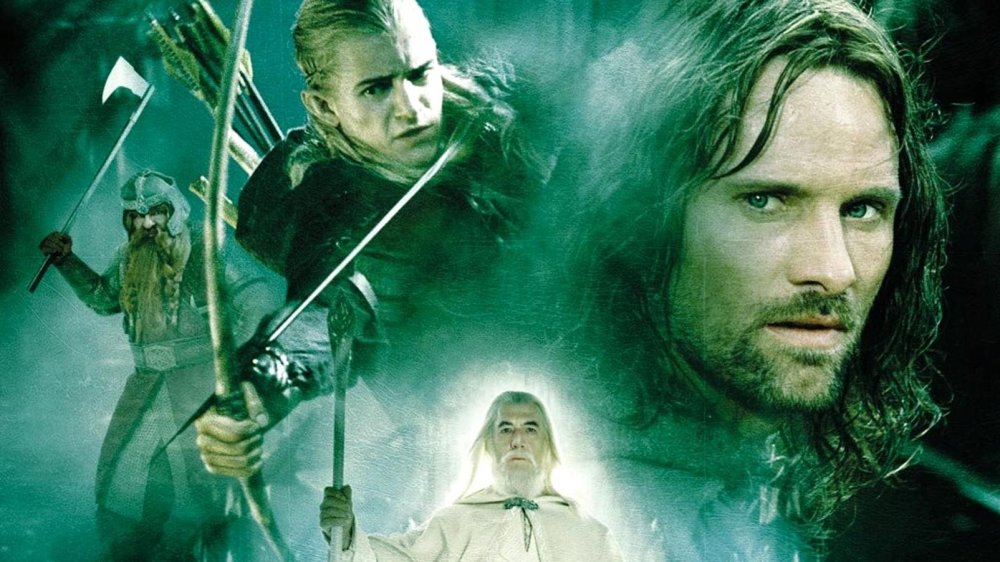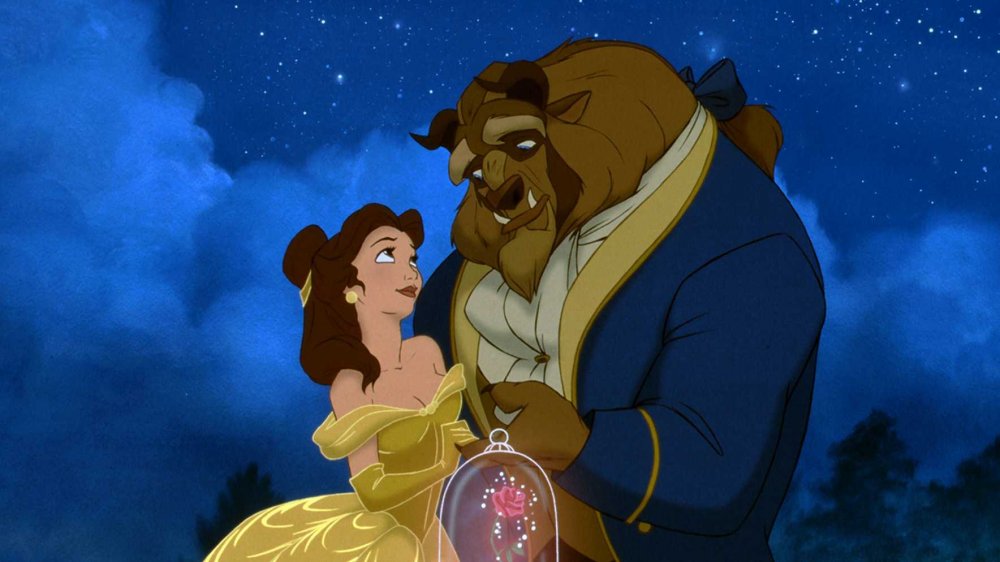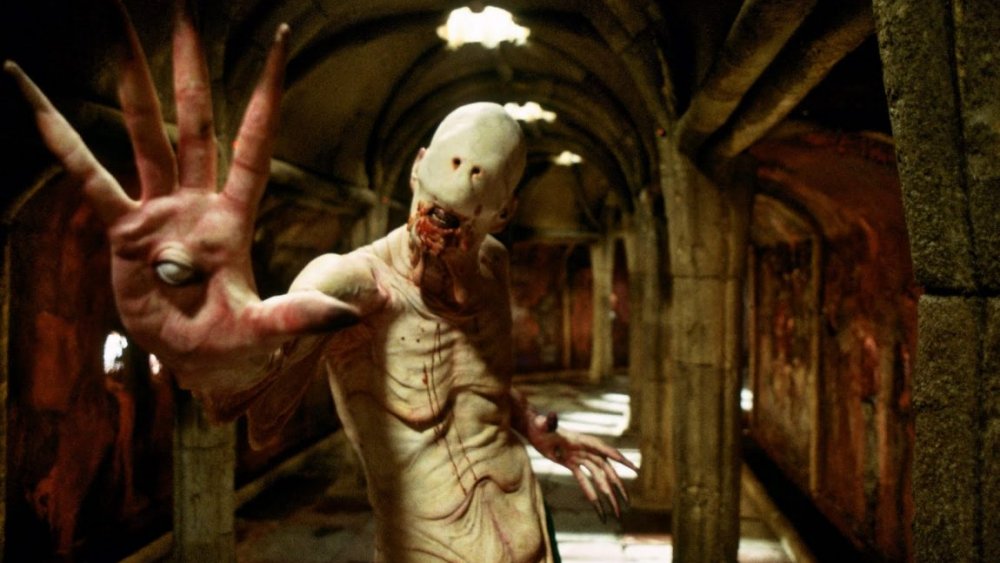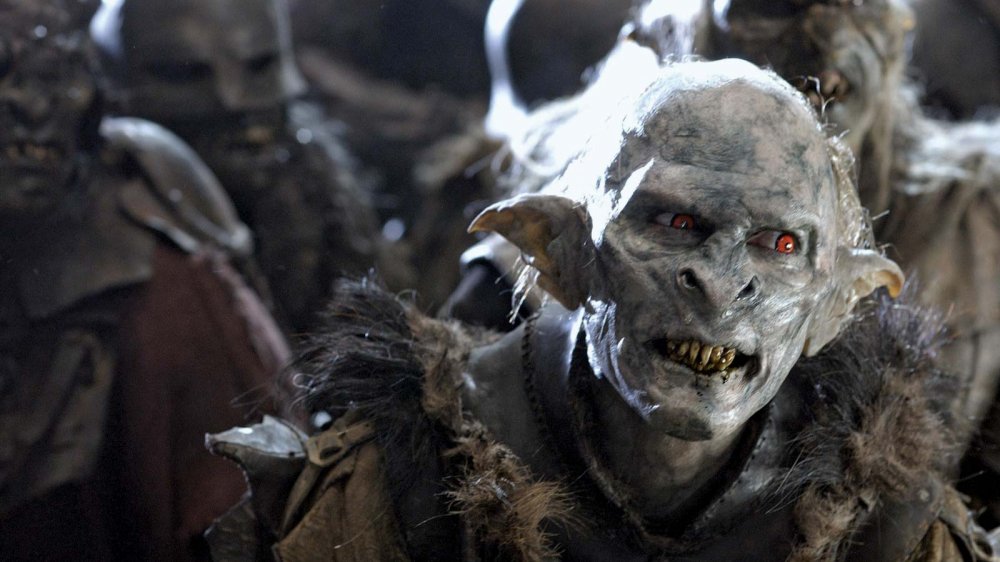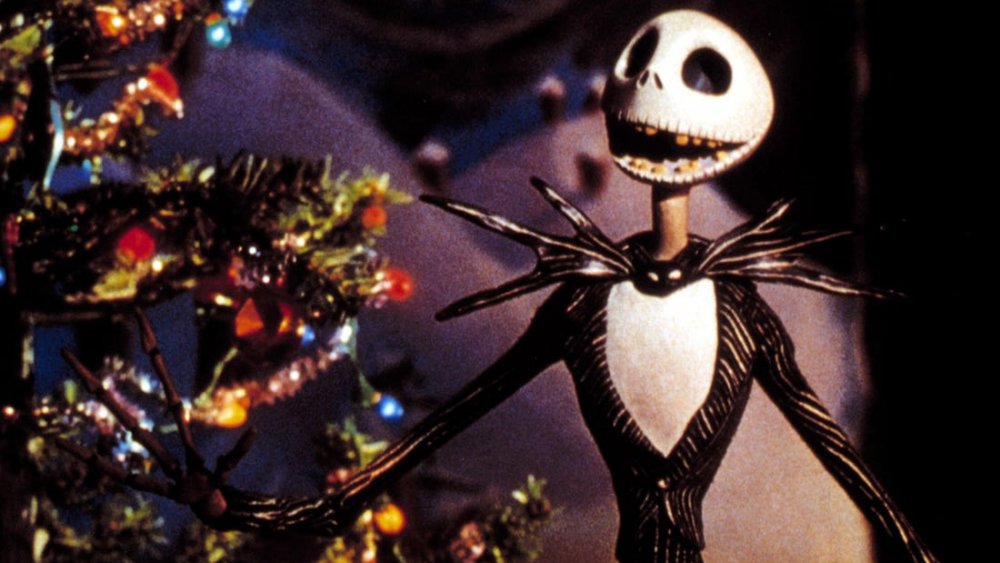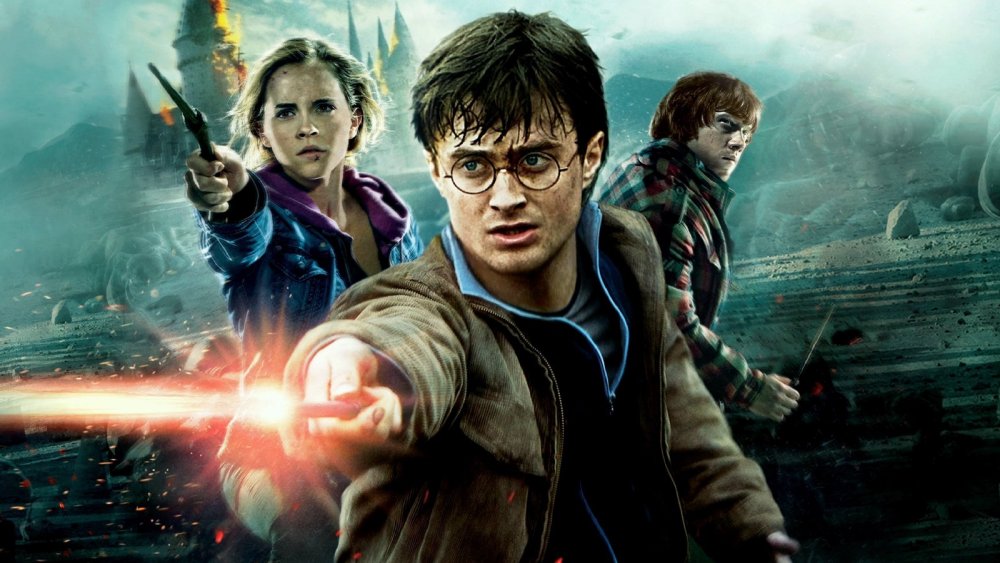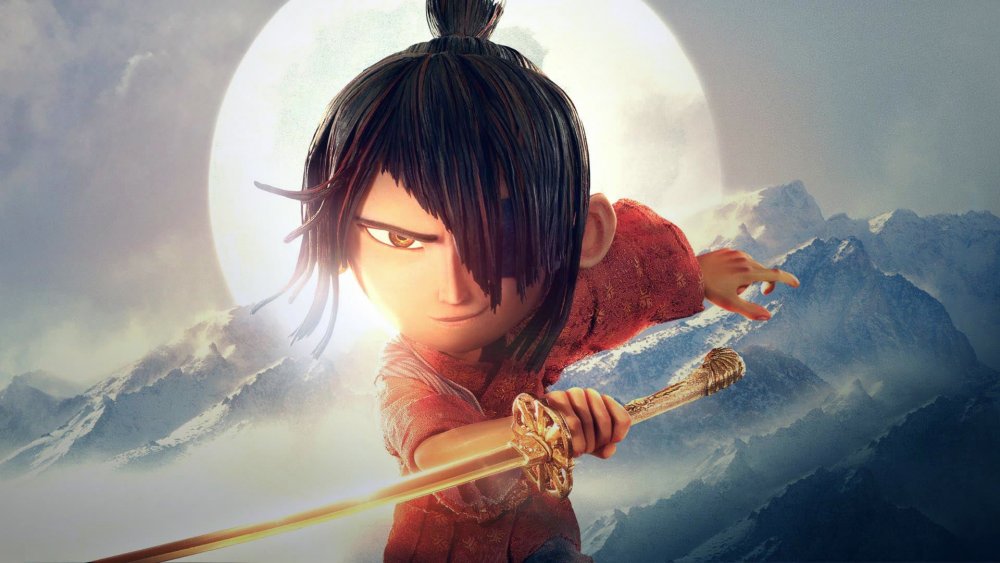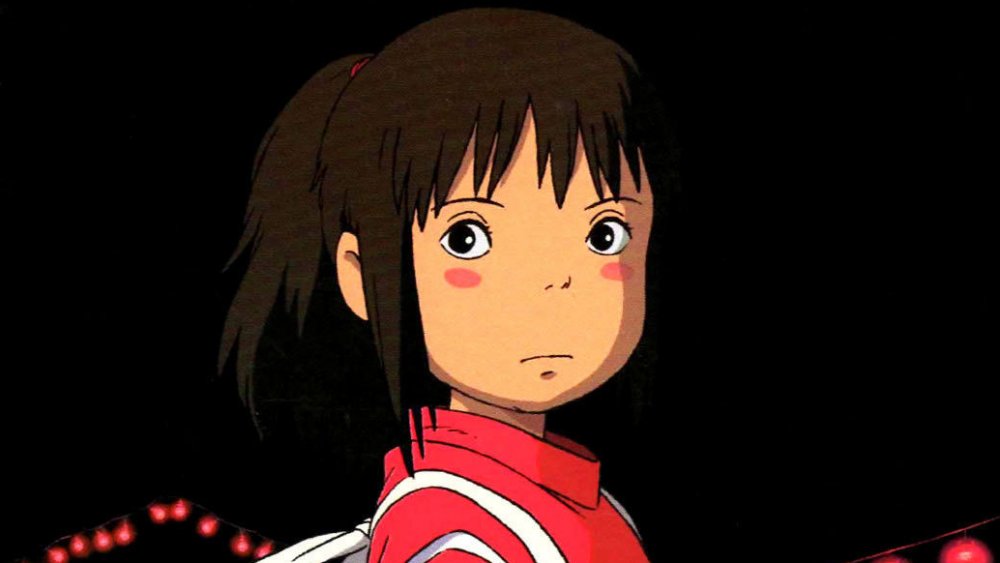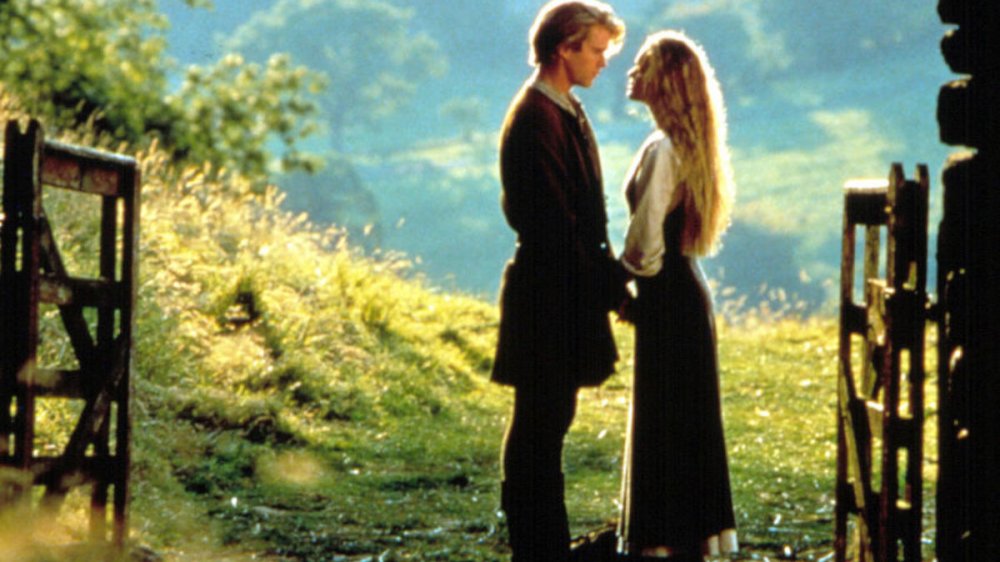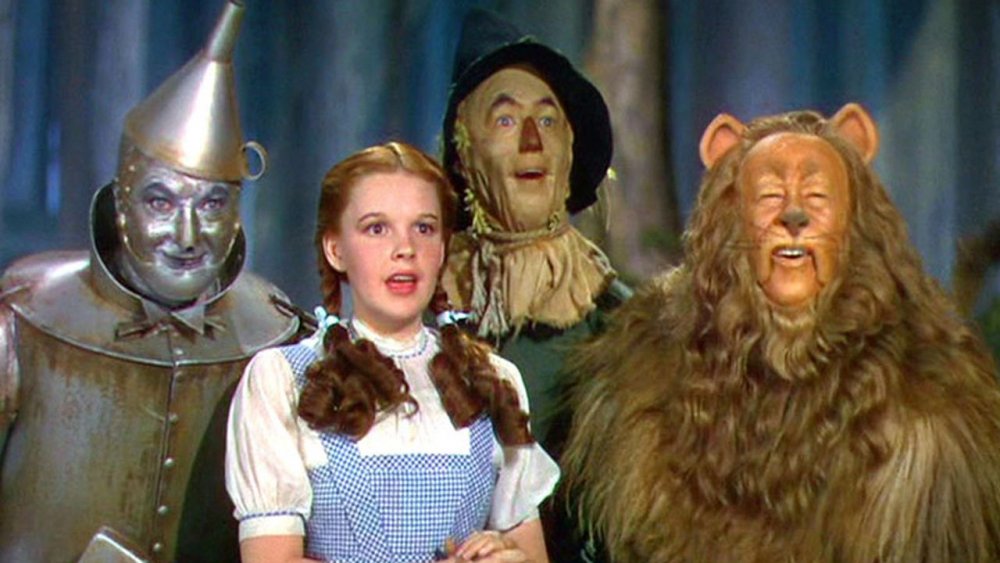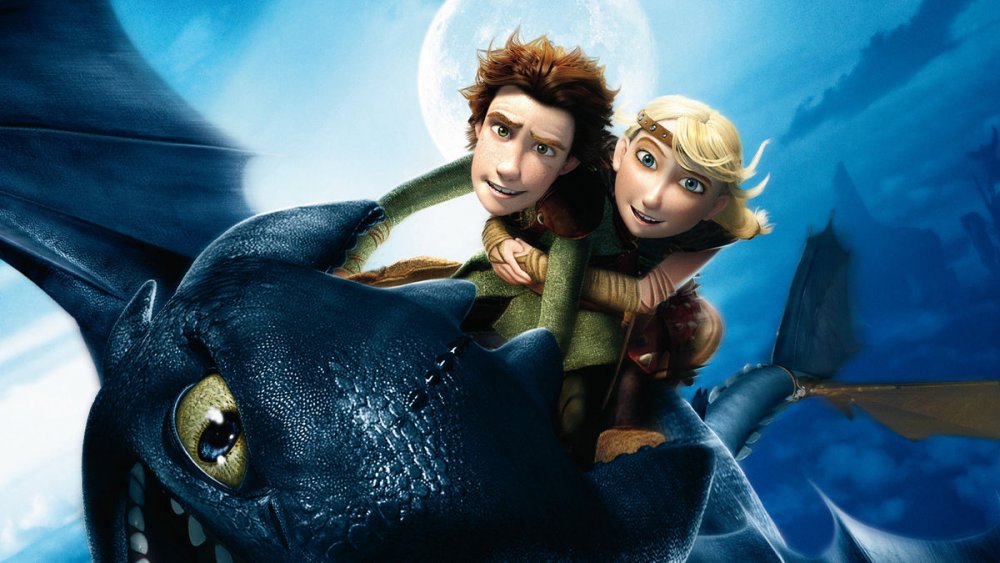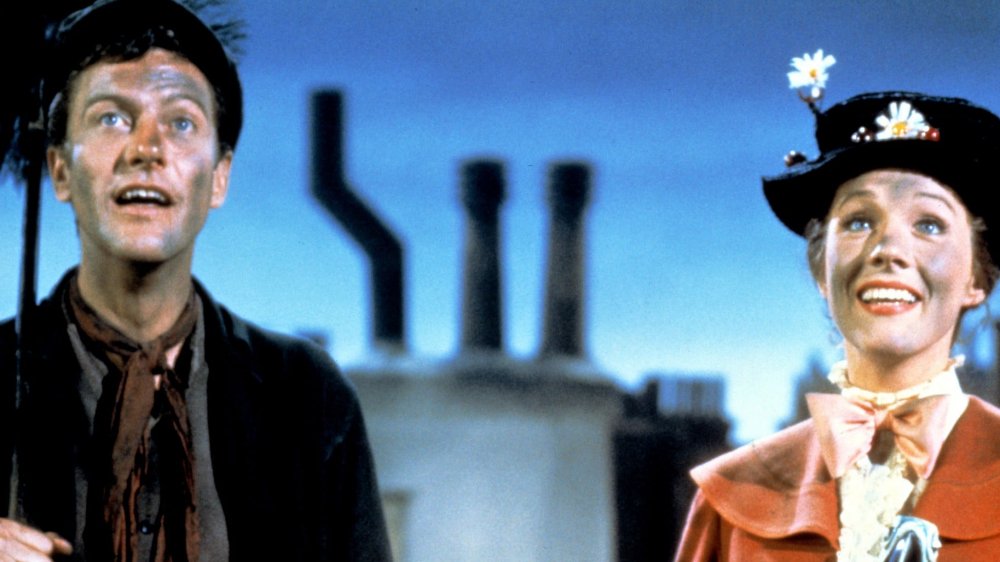The Best Fantasy Movies Of All Time According To Rotten Tomatoes
By some definitions, "fantasy" is a catchall word for a big genre that covers science fiction and superheroes as well as elves and wizards. But as much as we love The Empire Strikes Back and The Dark Knight, for the purposes of this list, we're focusing solely on sword fights, mythical creatures, alternate realities, and magical spells. There's plenty of variety there. Both live-action films and animated ones are fair game (some of these movies even have a little of both, and we're not just talking about CGI).
While we're at it, we might as well cover the most common misunderstanding about how Rotten Tomatoes actually works: the score a movie gets doesn't represent RT's opinion or the word of just one critic, but rather a percentage derived from dozens of collected reviews that the site aggregates. There's an argument to be made that this might not be the best approach — that shoving everything into a binary system like this, and determining whether an on the fence review is good or bad, might miss the point entirely. But on the other hand... let's just dive in. These are the best fantasy movies of all time according to Rotten Tomatoes.
Beauty and the Beast (1991) – 94%
To be fair, lots of Disney films (and animated classics in general) could've made this list. But it's hard to argue with the critics here. 1991's Beauty and the Beast, a staple of Disney's pre-Pixar renaissance (a period that includes 1989's The Little Mermaid and 1994's The Lion King), is as good as animation, and cinema, gets. Based on both the 1740 short story by Jeanne-Marie Leprince de Beaumont, and the equally great French film from 45 years earlier, this animated classic won overwhelming critical acclaim upon release — and for good reason.
It's the story of Belle, a young French girl who's captured by, and who falls in love with, a reclusive beast who only has until the last petal falls from a magical rose to fall in love himself and revert back to human form; otherwise, like Shrek's Fiona, he'll stay a beast forever. Meanwhile, the egomaniacal Gaston has the locals in Belle's town convinced she's in terrible danger, and leads them on a quest to kill the beast so he can have Belle to himself. Also, there's a living candlestick whose best friend is a clock, and a teapot with a cup for a son, and a walking chest of drawers and... you know what? This all looks really stupid when it's written out, so it's probably best to just go see the movie. But we all know you already have. Over and over again.
Pan's Labyrinth (2006) – 95%
Written and Directed by Guillermo del Toro (of The Shape of Water and Pacific Rim fame, among others), Pan's Labyrinth is a truly masterful cinematic parable told — in the director's words — in the vein of Alice in Wonderland, but considerably darker and more mature. It tells the story of Ofelia, a young Spanish girl in 1944 who, after traveling to meet her new stepfather (a Francoist Spanish soldier tasked with hunting rebels), stumbles upon a stone labyrinth filled with mythical creatures.
The faun guarding the entrance to this maze believes Ofelia to be the reincarnation of Princess Moanna, who's prophesied to one day return to rule the underworld, and tasks Ofelia with various objectives (retrieving a key from the belly of a great toad, retrieving a dagger from the child-eating Pale Man, and spilling the blood of the innocent to open a portal to the underworld) to restore her to the throne. However, things go south in the world above as her stepfather continues his ruthless campaign, and Ofelia's ability to navigate the struggles of both places is put to the test.
We won't spoil the ending (or detail how Ofelia completes any of these tasks), and probably haven't done a great job communicating just how otherworldly and magical this film is. As evidenced by its Rotten Tomatoes score, the critics agreed and put it on countless 2006 Best of the Year lists. If you haven't seen it, do so now. We promise you won't be disappointed.
The Lord of the Rings: The Two Towers (2002) – 95%
All three Lord of the Rings films were fantastic, but you really can't beat The Two Towers. We kick things off after a rather bittersweet ending to 2001's The Fellowship of the Ring, in which Boromir died, Frodo struck out alone, Sam nearly drowned getting to him, and Merry and Pippin were captured by orcs. Aragorn, Legolas, and Gimli head out not to escort Frodo to Mordor, but instead to save the other two hobbits. Their journey leads them to a resurrected Gandalf and into Rohan, which is besieged by the forces of the evil wizard Saruman (who's working for the Big Bad, Sauron).
Meanwhile, bumbling hobbits Merry and Pippin manage to convince a group of walking, talking (and rather apathetic) trees to take the fight to Saruman after he slaughtered their brethren in a deforestation binge. Further east, Frodo and Sam capture the Ring-obsessed Gollum and force him to guide them to Mordor, only to get caught themselves by foot soldiers from Gondor who mistake them for spies and plan to turn them in. There's more than enough world-class fantasy filmmaking for fans to sink their teeth into. But nothing matches the jaw-dropping spectacle that is the ferocious, desperate, and terrifying Battle of Helm's Deep. It doesn't quite surpass Saving Private Ryan's opening Omaha Beach sequence on the list of all-time greatest battle scenes, but it came damn close, and hasn't really been equaled since.
The Nightmare Before Christmas (1993) – 95%
All forms of animation have their merits, but there's just something about stop-motion that's simply enthralling. Maybe it's the slightly off-time movement of everything that gives it an otherworldly feel, or the weird mash-up of real texture and cartoon features, or the knowledge that an enormous amount of effort went into crafting every moment of the film. Whatever the case may be, it doesn't get better than The Nightmare Before Christmas.
It's the story of Pumpkin King and Halloween Town mayor Jack Skellington, who tires of the same spooky routine year after year and tries to sell the idea of Christmas to a town that can't imagine a holiday other than the one after which they're named. The songs are great and the characters are unforgettable, but it's the wild, dreamlike union of Christmas and Halloween aesthetics that really draws you in and blows you away. You can't explain how or why it works, you just know that, like peanut butter and jelly, or peanut butter and chocolate, or peanut butter and bananas, it does. Don't bother with the mechanics; sit back and let the wonder wash over you in waves. Then get angry that we haven't replaced Thanksgiving with Halloweenmas or Chrisween, or whatever we'd call it. Then at some point later you'll realize you're an adult and can make your own Halloweenmas, and will simply re-watch The Nightmare Before Christmas. It's a Halloweenmas tradition.
Harry Potter and the Deathly Hallows, Part 2 (2011) – 96%
It's been pointed out that, like the books on which they're based, the Harry Potter movies grew up with their stars and audience. The Sorcerer's Stone is pretty much a kiddie flick, but by the time we got to the second half of The Deathly Hallows, things have changed. Simply put, this is a war movie. Albus Dumbledore has been dead for a while now, Snape has (seemingly) joined the Death Eaters, and Voldemort, now on to Harry, Ron and Hermione's quest to rid the world of his horcruxes, plans to kill Potter and crush Hogwarts into dust. It's violent, dark, truly scary in parts and seemingly hopeless in others. And yet despite all the blood and rubble, it never loses touch with the simple message that made the franchise so magical in the first place: that with courage and the help of friends, good can always triumph over evil. Maybe that's not always true in the real world. But The Deathly Hallows Part 2 invites us into a place where even a small bit of hope makes loss and suffering worth enduring. And you know what? Movies like this may just inspire their viewers to create a world more consistent with that idea. Isn't that what art is all about?
Kubo and the Two Strings (2016) – 97%
Stop-motion animated films are hard enough to make that the market has never been over-saturated with them, and each installment still feels special. Wes Anderson and Tim Burton have given us a few great ones, and Coraline stole our hearts in 2009 (and very nearly made this list). But according to the critics, the one to beat in the 21st century so far is none other than 2016's Kubo and the Two Strings.
It's the story of Kubo, an eye-patched kid on the hunt for his missing father, who fights the evil forces of the Moon King. If that all sounds rather straightforward and generic, it's anything but. There's music that makes origami come to life, animal charms brought to life in the form of talking monkeys that wield wish-granting magic strings, a beetle samurai, enchanted weapons in forbidden places and towering monsters guarding them. In the end, we learn a powerful lesson about family, redemption, and how we're defined by our memories. It's a gorgeous feat of filmmaking that refuses to hold your hand or bore you with shallow clichés, and if you haven't seen it, you're in for a thrilling, poignant treat.
Spirited Away (2002) – 97%
Nobody in the history of film (other than maybe Walt Disney) has done more to legitimize animation than legendary Studio Ghibli co-founder Hayao Miyazaki. The mere mention of his name draws nods of reverence. There's a good reason for this, too: his anime films (1986's Castle in the Sky, 1988's My Neighbor Totoro, and 1997's Princess Mononoke among them) are consistently boundary-pushing, breathtaking and all-around wonderful. But 2001's Spirited Away, about a young girl who encounters a world filled with the bizarre spirits (Kami) of Japanese Shinto folklore, has transcended even these achievements and is frequently referenced not only as one of the best animated features, but as one of the greatest films ever made.
It's also one of the most successful animated movies, raking in $347 million on a $15-20 million budget and beating out Titanic to become the highest-grossing film ever released in Japan. It won the Academy Award for Best Animated Feature at the 75th Oscars, and its influence hasn't diminished in the years since its release. In 2016, the BBC asked 177 film critics what the best movies of the 21st century have been, and Spirited Away beat out every animated feature to come in an impressive fourth place. The next year, the New York Times gave it a second place finish over the same time period.
The Princess Bride (1987) – 97%
Who said fantasy has to take itself seriously? Director Rob Reiner (known for 1989's When Harry Met Sally..., 1992's A Few Good Men, and 1984's This is Spinal Tap) adapted The Princess Bride, based on William Goldman's 1973 novel of the same name (and the screenplay Goldman himself wrote), delivering a laugh-a-minute riot that pokes fun of, and celebrates, swashbuckling damsel-in-distress tropes in equal measure.
It's the story of a lowly farmhand, Westley, who befriends an aggrieved fencing master (who seeks to avenge his late father) and a giant and sets off to rescue his love, Princess Buttercup, from the evil Prince Humperdinck and his chief lieutenant, Count Rugen (who has an extra finger on one hand). Do we have to explain it? Come on, we know you've seen The Princess Bride. At the very least, you've undoubtedly heard enough quotes from it that you might as well have seen it. It's up there with Monty Python and the Holy Grail, Airplane!, and Borat as one of the most quoted comedies of all time. How about "You've fallen for one of the two classic blunders!" or "Inconceivable!" or "Mawwiage!" or, of course, "My name is Inigo Montoya. You killed my father. Prepare to die." That last one is even more powerful because actor Mandy Patinkin was thinking of his own recently deceased father when he delivered it. But you probably knew that, too, because it's just one of those movies you want to dive into.
The Wizard of Oz (1939) - 98%
If you were trying to determine the most influential film of all time, it'd be tough to beat The Wizard of Oz. The ruby red slippers. The Wicked Witch of the West. "There's no place like home." The cowardly lion. The scarecrow. "We're not in Kansas anymore." "I'm melting!" Seriously, SO many elements of this movie have become timeless staples of American pop culture that there really isn't another film that can compete (maybe Star Wars, but even that's a stretch). Honestly, this movie hardly even feels like a movie as much as an event, like Woodstock or the moon landing.
Yeah, it lost out to Gone With the Wind (also directed by Victor Fleming; imagine having that kind of legacy) at the Academy Awards. But who needs an Oscar when you're the most viewed motion picture in history (as determined by the Library of Congress years after its 1956 TV broadcast)? The Wizard of Oz is a rather large deal, is the point, and critical acclaim for the film, both at the time and in the years since, has been absolutely nosebleeds high. We'd tell you to go see it, but if you haven't yet, you probably don't know what the internet is and will never come across this article.
How to Train Your Dragon (2010) – 99%
According to Rotten Tomatoes, 2010's How to Train Your Dragon is the most critically acclaimed animated fantasy film ever made. And why shouldn't it be? Its relatively recent vintage doesn't at all detract from its stunning visuals, the fantastic performances of the voice actors, John Powell's unforgettable musical score, or the heartfelt, funny, thoroughly entertaining story of a scrawny underdog kid trying to prove himself to his tough-as-nails Viking clan, all while befriending, healing, and training a dragon enemy.
It's also a highly successful film, one that launched arguably the most beloved DreamWorks animated franchise besides the Shrek franchise. These days, it can seem like the mark of a successful movie is getting at least one sequel — and Dragons has two: 2014's How to Train Your Dragon 2 (92% on the Tomatometer) and 2019's How to Train Your Dragon: The Hidden World at 91%. As you can see, both of these smashes only just missed making this list. We would've loved to have them, but the 2010 original flies high enough on its own.
Mary Poppins (1964) – 100%
Mary Poppins joins fewer than 1,000 films in global cinematic history by hitting the elusive, rarely seen 100% on Rotten Tomatoes, and naturally closes out our list. Not even the most hard-to-please critic could bring themselves to besmirch this all-time Disney classic, maybe because it's been a staple of virtually every Western childhood since its 1964 release and they simply can't decouple it from the wonderful memories they made watching it as kids.
It's worth noting that out of all the masterpieces Walt Disney released during his lifetime, Mary Poppins is the only one to have received a Best Picture nomination at the Academy Awards. Also worth noting: that was only one of 13 nominations that year. It won five: Best Actress for Julie Andrews, Best Film Editing, Best Visual Effects, Best Original Musical Score, and Best Original Song for "Chim Chim Cher-ee," which will now be stuck in your head until the sun explodes. Sorry about that. This film's shortcomings aren't just few and far between, but were turned into strengths. Dick Van Dyke's atrocious Cockney accent, for example, is hilarious and endearing, and the visual effects put the viewer in a visual time machine back to a golden era of film when you had no choice but to make silly decisions and run with them. The result is a Disney knockout.
